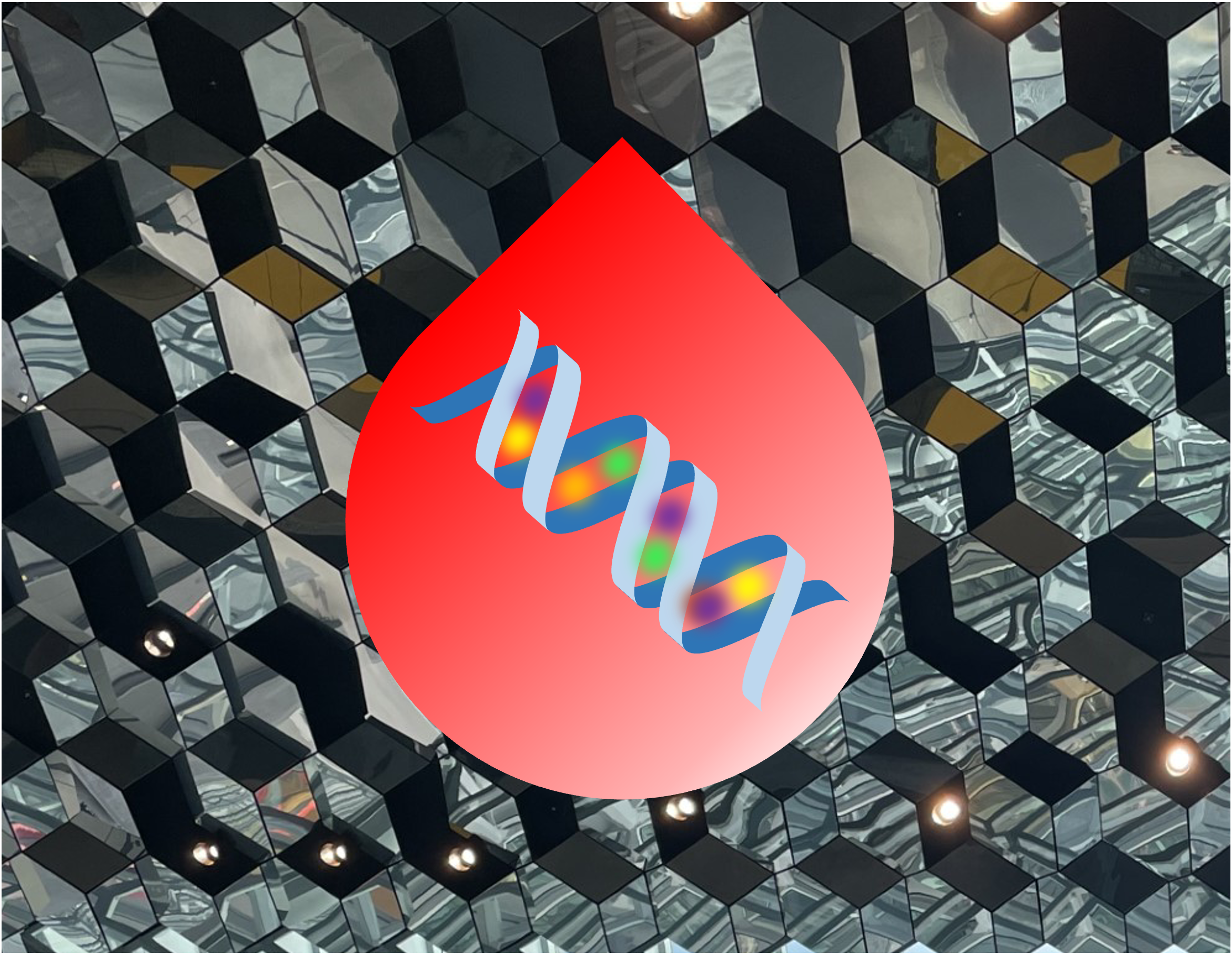Cancer is one of the leading causes of death. One in four people will suffer from cancer in their life time. Many cancers are asymptomatic in early stage. When patients are diagnosed with cancer, they are often in advanced stages, leading to a poorer survival. The key to conquer the disease is to detect cancer at its early stage. Traditionally, cancer diagnosis relies on invasive methods such as tissue biopsy, which can cause complications such as pain, infections and injuries to surrounding organs. As such, there has been an increasing interest in the development of non-invasive methods for cancer testing. This emerging field is called 'liquid biopsy'.
Recently, cell-free DNA (cfDNA) analysis in bodily fluids has become the focus of liquid biopsy. For instance, in a recent study involving plasma DNA analysis of 20,000 asymptomatic individuals conducted by our team at The Chinese University of Hong Kong, it has been revealed that the circulating Epstein-Barr virus DNA can serve as biomarker for screening nasopharyngeal carcinoma, making a paradigm shift in the proportion of cancer patients identified at early stage when the cancer can be cured [1]. The survival rate was improved 10 times in screened individuals than those in historical cohort, bringing hope to cancer diagnostics using liquid biopsy. Apart from cancer screening, cfDNA analysis can also guide cancer treatment decisions. This is demonstrated by the detection of epidermal growth factor receptor (EGFR) mutations in the plasma of non-small cell lung cancer patients and the subsequent choice of targeted therapy for treatment [2].
As cfDNA-based liquid biopsy has gradually been gaining popularity in cancer diagnostics, there has been ongoing research efforts in enhancing the understanding of the properties of cfDNA. One key area of research would be epigenetics, which involves chemical modifications without alterations of DNA sequence. Of note, DNA methylation is an important type of epigenetic modification. Recently, based on methylation analysis of plasma DNA, not only could we diagnose cancer, the location of cancer could also be determined [3]. This approach was subsequently applied to screen multiple cancers in a large prospective cohort of 6689 participants [4] and led to the world’s first commercial product of a multi-cancer early detection test called 'Galleri' in the market.
However, these existing research efforts mostly employed next-generation sequencing platforms for cfDNA analysis. These platforms are not able to sequence DNA molecules that are longer than 600 bp. As a result, previous studies only assessed short cfDNA molecules. It is not known whether long cfDNA exists in cancer patients. Also, the conventional approach for methylation analysis is bisulfite sequencing. Bisulfite is well-known for causing drastic DNA degradation, making it less preferable for methylation analysis in long cfDNA.
Third-generation sequencing platforms (e.g. single-molecule real-time [SMRT] sequencing by Pacific Biosciences and nanopore sequencing by Oxford Nanopore Technologies) are able to sequence long DNA molecules. Recently, Tse et al. developed an artificial intelligence model, named the holistic kinetic model (HK model), which analyses the sequence context and kinetic signals of polymerases during SMRT-sequencing to predict the methylation status of cfDNA molecules [5]. This approach has overcome the long-standing technical bottleneck in methylation prediction during SMRT-sequencing, with the accuracy improved from 5% to 95%. In our recent study, we analysed the size of the plasma DNA of liver cancer patients and control individuals with the SMRT-sequencing platform and utilised the HK model for direct methylation analysis [6]. We demonstrated that a large proportion of previously-unidentified long cfDNA molecules exists in the plasma of cancer patients (median: 16% longer than 1 kb), with the longest plasma DNA molecule identified in cancer patients being 39.8 kb. Tumoral DNA are generally shorter and more hypomethylated than nontumoral DNA. Direct methylation analysis of long DNA enables tissue-of-origin analysis of individual molecules, greatly enhancing the informativeness of liquid biopsy. Based on the single-molecule methylation patterns of cfDNA, we devised a metric to differentiate individuals with and without cancer. When long DNA molecules with more CpG sites were used, the performance was enhanced. This study has opened a new path in cancer liquid biopsy with the use of long cfDNA. Although the third-generation sequencing platforms are still costly and have a lower throughput than next-generation sequencing platforms, long cfDNA analysis still represent an exciting area to be explored for liquid biopsy.
References:
- Chan KCA, Woo JKS, King A, Zee BCY, Lam WKJ, Chan SL, et al. Analysis of Plasma Epstein-Barr Virus DNA to Screen for Nasopharyngeal Cancer. N Engl J Med 2017 Aug 10;377 6
- Kwapisz D. The first liquid biopsy test approved. Is it a new era of mutation testing for non-small cell lung cancer? Ann Transl Med 2017 Feb;5 3
- Sun K, Jiang P, Chan KC, Wong J, Cheng YK, Liang RH, et al. Plasma DNA tissue mapping by genome-wide methylation sequencing for noninvasive prenatal, cancer, and transplantation assessments. Proc Natl Acad Sci U S A 2015 Oct 6;112 40
- Liu MC, Oxnard GR, Klein EA, Swanton C, Seiden MV, Consortium C. Sensitive and specific multi-cancer detection and localization using methylation signatures in cell-free DNA. Ann Oncol 2020 Jun;31 6
- Tse OYO, Jiang P, Cheng SH, Peng W, Shang H, Wong J, et al. Genome-wide detection of cytosine methylation by single molecule real-time sequencing. Proc Natl Acad Sci U S A 2021 Feb 2;118 5
- Choy LYL, Peng W, Jiang P, Cheng SH, Yu SCY, Shang H, et al. Single-Molecule Sequencing Enables Long Cell-Free DNA Detection and Direct Methylation Analysis for Cancer Patients. Clin Chem 2022 Sep 1;68 9
Author:
Dr Lois Choy, Department of Chemical Pathology, The Chinese University of Hong Kong
October 2023

